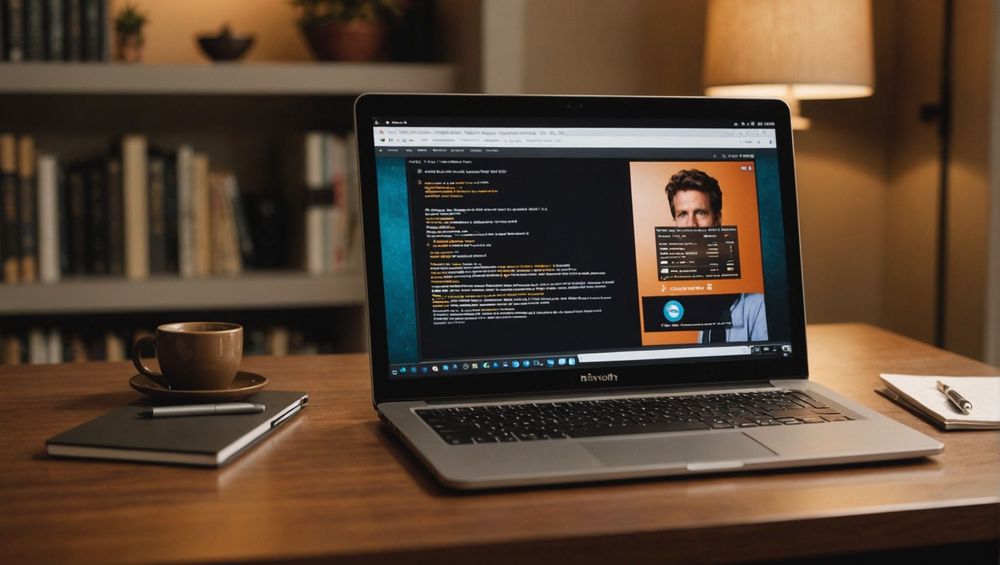
Choosing the best laptop for programmers boils down to power, performance, portability, and personal preferences. Laptops that excel in these aspects can significantly enhance your coding experience. Key specifications such as processor speed, RAM, storage, and battery life all play critical roles in determining the best option for developers. Whether you’re a software engineer, web developer, or data scientist, this guide will help illuminate the best choices on the market today.
Essential Specifications and Features

When selecting a laptop for programming, certain specifications and features should be prioritized. Understanding them ensures you invest in a machine that meets your coding needs effectively. Some essential specifications include:
- Processor: A powerful multi-core processor such as Intel’s i5 or i7, or AMD’s Ryzen 5 or 7, is foundational for running complex applications and multitasking smoothly.
- RAM: For programming, a minimum of 16GB of RAM is recommended. This is crucial for running development environments and virtual machines without lag.
- Storage: Opt for a Solid State Drive (SSD) over a Hard Disk Drive (HDD) for faster read/write speeds. Aim for at least 512GB of SSD storage for adequate space.
- Display: A Full HD display (1920×1080) provides better visibility for code and graphics, making multi-window tasks more manageable.
- Battery Life: A laptop with long battery life is vital, especially for mobile developers who may work on the go.
Top Laptop Recommendations for Programmers

Several laptops stand out as excellent choices for programming. The right choice depends on your specific software requirements and budget, but here are some top contenders:
- Apple MacBook Pro: Renowned for its build quality and macOS optimizations for various development tools. It offers M1 or M2 processors, excellent battery life, and a Retina display.
- Dell XPS 15: Known for its stunning display and performance, the XPS features a powerful Intel CPU, NVIDIA GPU, and ample storage options ideal for programming.
- Lenovo ThinkPad X1 Carbon: An industry favorite for its keyboard comfort, solid performance, and lightweight design, it’s perfect for frequent travelers.
- Asus ROG Zephyrus G14: While targeted at gamers, this laptop’s Ryzen 9 processor and high refresh rate display make it an excellent choice for intensive development tasks.
- Microsoft Surface Laptop 4: Offers great portability with a sleek design, touchscreen functionality, and a comfortable keyboard, suitable for developers who appreciate aesthetics.
Choosing Between Windows, macOS, or Linux
The operating system you choose significantly impacts your programming workflow. Each OS has its advantages and ideal use cases. Here’s a breakdown:
- Windows: Highly versatile and supports a wide range of development tools, from Visual Studio for .NET programming to various IDEs for web and mobile development.
- macOS: Preferred for its Unix-based structure, macOS is particularly beneficial for iOS development and general software engineering, especially with tools like Xcode.
- Linux: Favored by many developers for its flexibility and open-source nature, Linux is excellent for server-side programming and development in Python, Ruby, and more.
Budget Considerations
Budget is a significant factor when selecting a laptop. It’s critical not only to find a machine that evokes performance but also one that fits your financial constraints. Consider the following tips when navigating your options:
- Set a Budget Range: Determine your maximum spend and ensure your needs align with potential features.
- Look for Deals: Often, manufacturers release models with discounts, especially during holiday sales or student discounts.
- Refurbished Options: Consider certified refurbished laptops, which can provide substantial savings for high-performance models while maintaining warranty safeguards.
- Don’t Compromise on Key Specs: Cut costs on aesthetic features like color and design, but prioritize essential specs that cater to programming demands.
- Time Your Purchase: Prices fluctuate; keep an eye on market trends and make your purchase when prices dip.
Conclusion
In conclusion, the best laptop for programmers must balance performance, specifications, and budget. By focusing on essential features like processor, RAM, storage, and display, as well as considering the operating system that suits your workflow, you can make an informed decision. Whether you favor macOS, Linux, or Windows, there’s a perfect laptop out there tailored to your programming needs. Make sure to assess your options carefully, ensuring your investment enhances your coding productivity and comfort.
FAQs
1. What is the minimum RAM needed for programming?
The minimum recommended RAM for programming is 16GB, especially if you plan to run virtual machines or heavy applications.
2. Do I need a dedicated graphics card for programming?
Unless you’re developing graphics-intensive applications or gaming software, a dedicated graphics card is generally not necessary for programming.
3. Can I use an ultrabook for programming?
Yes, ultrabooks can be suitable for programming, albeit they might lack the power of high-performance laptops. Ensure to check specs before purchase.
4. Is Apple MacBook Pro worth the extra cost?
For macOS enthusiasts and developers targeting Apple platforms, the MacBook Pro often justifies its price with its performance and build quality.
5. What is more important: battery life or weight?
It depends on your usage; if you often work on-the-go, consider prioritizing battery life. However, a lighter laptop is also advantageous for portability.




